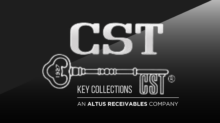article originally published on Credit Today
Looking for competent collectors? So is Pete Roth, president of CST Company, an agency specializing in commercial collections. Like Roth, even in these labor-tight times, you’re likely to find an abundance of experienced consumer collectors available. But how can you judge whether these candidates will be able to make the steep ascent in commercial collections competence?
“The pressure of consumer collections is touching a lot of files,” Roth notes. “They’re put into a group of people handling these accounts. They’re using an auto-dialer system so as soon as they hang up the phone another call is ringing. It’s typically a random thing. They’ve never seen or called the account before and it’s the fourth call the group has made to that account. They’re touching a lot of accounts and the recovery is a lot lower than in commercial work.”
Roth does, on occasion, hire applicants with mainly consumer collection experience. He starts them on small-balance accounts to help them develop the skills they will need to work with larger accounts. “We grow them to see if they can develop the necessary talents,” he says. “We want them to be the person assigned to the account, progressing the file forward. They’re not using a dialer on random files of $100 accounts. Instead, they have files assigned to them. They may have developed the ability to size up retail debtors and guide them to the next step. But the commercial side gives them more range to find their way to the person who owes it.
Roth’s succinct advice to collectors transitioning from consumer to commercial work is a quote from legendary college basketball coach, John Wooden, Be quick but don’t hurry.
“In our world we don’t need them to talk to a clerical person (like in retail, grandma lives with them but won’t be making the payment). We need them to talk to the decision maker, whether that’s the AP manager, the president or the owner. They must know what direction to take. Looking at prior experience with the account, they use that data to find the most expedient way to get to the right person and get the right answers.”
Roth’s succinct advice to collectors transitioning from consumer to commercial work is a quote from legendary college basketball coach, John Wooden, “Be quick but don’t hurry.” He wants them to work quickly, to use their time wisely and to be productive–but also to be professional, taking the steps necessary to move the account forward. You must get to the right person. They have to communicate well, and professionally.
“They come in with an understanding of the FDCPA, and that’s a very good foundation,” he says. “But it isn’t everything. It doesn’t apply in this industry, but professionalism does.”
Among the places he’s been successful in finding commercial collections candidates are career fairs at local universities.
Roth doesn’t confine his search to consumer collection veterans. Among the places he’s been successful in finding commercial collections candidates are career fairs at local universities. “Someone may well be looking for part-time work in something more closely related to their area of study than working in a fast food restaurant,” he says. He’s picked up finance majors who have excelled doing part time work making the agency’s customer service/collection soft-calls for clients. They call our client’s customers to ask if they’ve received their invoices, if they have questions, if they need to talk to the sales people and to do some pleasant digging to make sure everything is as it needs to be to set the table for the client to get paid and not have to use a collection agency. It can be a great way to determine who may have the aptitude for moving over into true third-party collections.
Mistakes people make going from consumer to commercial work stem from the consumer collection mantra that the more accounts you touch, the more money comes in. In commercial collections what is paramount is understanding the account. Before calling, the collector must look at the record and know who was spoken to, what was said, what the result was and what he or she has to do next to draw this closer to the necessary conclusion.
“The ideal account is open and operating and we know whom we have to reach and how to reach them both by phone and email,” he says. “Accounts are well documented with invoices, statements, credit applications, enforceable personal guarantees for interest and collections fees–not just unenforceable suggestions on the invoice. The ideal commercial collector knows the importance of all of this information and how to use it.”
